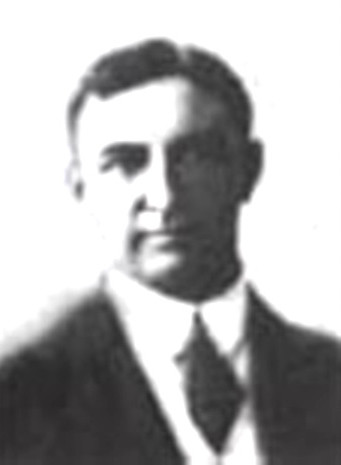1900 Summer Olympics / Athletics - 200 m (men)

|
|
| sport | athletics |
| discipline | 200 meter run |
| gender | Men |
| place | Croix Catelan |
| Attendees | 8 athletes from 7 countries |
| Competition phase | July 22, 1900 |
| Medalist | |
|---|---|
|
|
Walter Tewksbury ( USA )
|
|
|
Norman Pritchard ( India )
|
|
|
Stan Rowley ( Australia )
|
The men's 200-meter run at the 1900 Olympic Games in Paris was held on July 22, 1900 in the Croix Catelan . A total of 8 athletes took part. This competition was part of the Olympic program for the first time.
There was also a US victory on this sprint route. The Olympic runner-up in the 60 and 100 meters Walter Tewksbury won the gold medal. Silver went to Norman Pritchard from India . The Australian Stan Rowley won bronze as he did in the 60 and 100 meters.

Records
The unofficial world record was set in races over 220 yards , which corresponds to 201.168 meters.
| World record | 21.4 s |
|
James Maybury | Chicago ( USA ), June 5, 1897 |
|
|
Bernard Wefers | Toronto ( USA ), September 25, 1897 |
The following records were broken or set in this discipline at the 1900 Olympic Games:
| Olympic record | 24.0 s |
|
William Holland | 1st preliminary, July 22nd |
| 22.2 s |
|
Walter Tewksbury | Final run, July 22nd |
Results
Prelims
July 22, 1900
The preliminary round was divided into two runs with three athletes each. The best two from each run - highlighted in light blue - reached the finals.
There are different or incomplete information on the preliminary stages in the various sources. In Kluge , whose representation otherwise with at Sports-Reference coincides be mentioned in each case only the first three runners. To Megede speaks of 3 preliminary runs and only states that the two Germans Kurt Doerry and Julius Keyl were eliminated. The two tables below list the version of Sports-Reference with the fourth place named there in addition to Kluge .
Forward 1
| space | Surname | country | time | |
|---|---|---|---|---|
| 1 | William Holland |
|
24.0 s | OR |
| 2 | Norman Pritchard |
|
unknown | |
| 3 | Adolphe Klingelhoefer |
|
unknown | |
| 4th | Ernő Schubert |
|
Holland was clearly superior to their opponents and celebrated an easy win.
Forward 2
| space | Surname | country | time |
|---|---|---|---|
| 1 | Stan Rowley |
|
25.0 s |
| 2 | Walter Tewksbury |
|
unknown |
| 3 | Yngvar Bryn |
|
unknown |
| 4th | Albert Werkmüller |
|
Tewksbury was one foot behind Rowley . The other participants were clearly behind.
final
July 22, 1900
The various sources used here agree on the ranking of the medal winners. At the Megede , in contrast to the other three, the fourth-placed Holland is not listed. Only on the website of the IOC are times for the runner in second and third place named. This latter version is shown in the table below.
| space | Surname | country | time | |
|---|---|---|---|---|
| 1 | Walter Tewksbury |
|
22.2 s | OR |
| 2 | Norman Pritchard |
|
22.8 s | |
| 3 | Stan Rowley |
|
22.9 s | |
| 4th | William Holland |
|
unknown |
In the final, Pritchard initially took the lead. Tewksbury passed him about halfway and eventually won easily. The Olympic champion had a lead of two and a half yards for the second . Rowley was another half yard behind while Holland reached the goal just behind Rowley.
literature
- Volker Kluge , Olympic Summer Games - The Chronicle I, Berlin 1997 ( ISBN 3-328-00715-6 )
- Ekkehard zur Megede , The history of Olympic athletics, Volume 1: 1896–1936, Verlag Bartels & Wernitz KG, Berlin, 2nd edition 1970
Web links
- SportsReference, Athletics at the 1900 Paris Summer Games: Men's 200 meters , English, accessed July 18, 2018
- Olympic Games Paris 1900, Athletics, 200m men , IOC website on athletics at the 1900 Olympic Games at olympic.org, English, accessed on July 18, 2018
Individual evidence
- ↑ Ekkehard zur Megede , The History of Olympic Athletics, Volume 1: 1896–1936, Verlag Bartels & Wernitz KG, Berlin, 2nd edition 1970, p. 30


